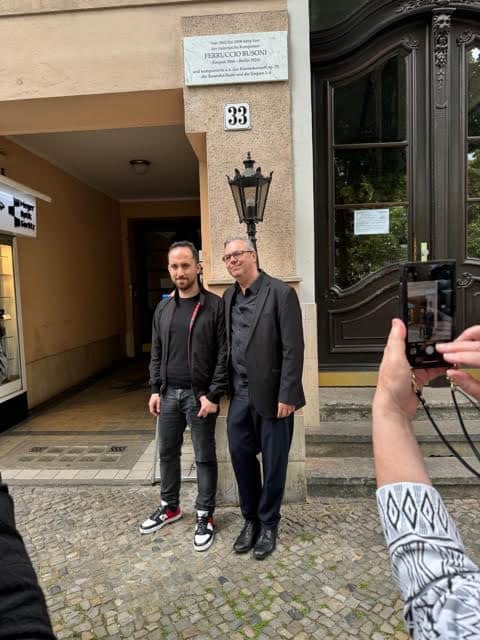Berlin commemorates Busoni
NewsThe house where Ferruccio Busoni lived from 1902-08, and where he composed his monumental piano concerto, was remembered with a memorial plaque yesterday in Berlin. Next month sees the centenary of the composer’s death.
Igor Levit, an outstanding interpreter of the concerto, shared his experiences of playing it at age 18.
pictured: Levit with Scott Curry






Comments